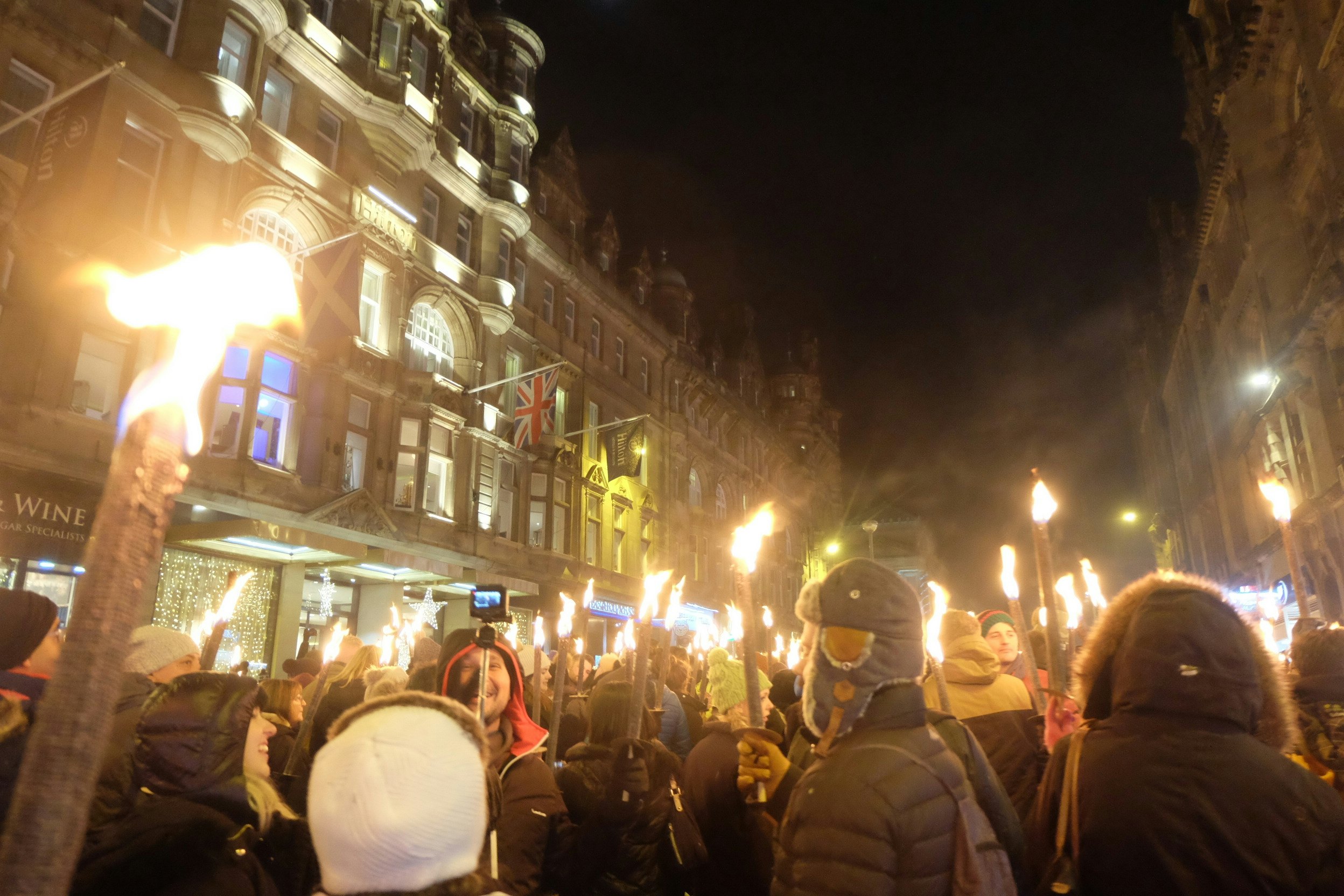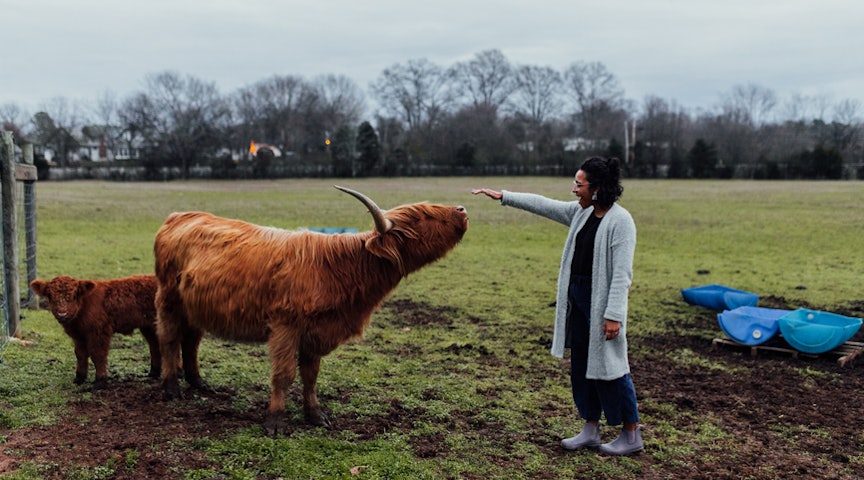
Jan 22, 20267 min read
The best time to visit Scotland for festivals, stunning landscapes and winter nights
Since Christmas celebrations were banned in Scotland for centuries, Hogmanay (New Year’s Eve) became – and remains – the biggest party of the year © Andrew Milligan - PA Images / Getty Images
You’ve probably got an idea of what Scotland’s traditional New Year’s Eve celebration on December 31 is all about. You’d better supersize those ideas.
This cuddly, Caledonian, cockeyed party is, in fact, a nearly week-long festival beginning shortly after Christmas and running long after the bells ring out at midnight on January 1.
The reason Hogmanay has become the preeminent holiday in Scotland is simple. In 1640, during the Protestant reformation in 1640, a law was passed that made celebrating “Yule vacations” illegal in Scotland – and Christmas celebrations remained legally banned for almost 300 years thereafter. There was no public holiday on December 25; punishments for violating the rules were harsh. Enter Hogmanay, then, to satisfy Scots’ need for a proper end-of-the-year party.
In the centuries since, the idea of Hogmanay has grown beyond any measure. Like St Patrick’s Day in Dublin, Mardi Gras in New Orleans or Carnival in Rio de Janeiro, the annual festivities have become a no-holds-barred celebration of Scottish culture in all its forms, with Edinburgh the ground zero for solid-gold frolics, street ceilidhs and single-malt whisky drinking. The Scots have embraced all this with gusto, regardless of how...creative some Hogmanay-related events might be. It definitely helps that the Scottish capital is such a good-looking place to hold a giant, week-long party in the first place. High spirits are guaranteed.

The promise of a once-in-a-lifetime party is reason enough for thousands of visitors to annually make Edinburgh their number-one option to ring in the New Year. Record attendance was set in the mid-1990s, when more than 300,000 revelers took to the city center for the free-for-all street party. With this amount of people, though, advance planning in strongly recommended – and the smart move is to get organized months in advance.
To begin with, check your accommodation options. Everything from swank hotels to simple hostels and smart Airbnbs crank up their rates over the Hogmanay period, with the cheapest options often selling out more than a year in advance. You’ll also want to book tickets for the main street party, the torchlit parade and any other headline events as soon as you’ve confirmed your accommodation. Everyone wants to offload their bags in the Old Town, but it’s the priciest option; the likes of the West End, Stockbridge, Bruntsfield, Fountainbridge and Leith are just as attractive. Best of all, pubs and bars all over town become must-do sights in themselves – so there’s little to interrupt the serious business of partying.
The day before New Year’s Eve sees the city awash with fire and light as a torchlit procession celebrating Scotland’s pagan and Gaelic roots snakes its way through the Old Town to Holyrood Park. With a ticket, you’ll be gifted a wax-based torch and be invited to join a family-friendly procession of like-minded firebugs.

Year’s end sees a 70,000-strong international tartan army cram onto Princes St to ceilidh and quaff whisky, before everyone pogos to bands and DJs from Waverley Bridge to the Mound. Then, to cap it all off, Edinburgh Castle lights up in a flurry of fireworks, while the masses sing “Auld Lang Syne” and toast the midnight bells with yet more whisky.
Running parallel to this throughout the capital are various ticketed events, from themed ceilidhs to marquee folk and rock concerts to family fireworks shows held beneath Castle Rock in Princes Street Gardens. While some events are free, the corporate nature of Hogmanay nowadays means many are individually ticketed, with booking links available on the official Edinburgh’s Hogmanay website.
Bear in mind that December tends to feature the worst weather of the Scottish year. So if you’re prepared for it to be wet, windy, dark and cold, with temperatures hovering around 0°C (32°F) at times, you won’t leave disappointed.
To make life easier and encourage responsible drinking, local operator Lothian Buses runs late-night services throughout Hogmanay, as does Edinburgh Trams, which connects Edinburgh Airport to Leith via Princes Street and St Andrew’s Square.

Hungover? You might well be. If so, do what around 1000 Scots do each year and join the Loony Dook. It’s a bum-numbing fancy dress swim that sees those who haven’t yet gone to bed hurl themselves into the freezing waters of South Queensferry, beneath the iconic Forth Rail Bridge. It’s where a heroic feat of engineering meets heroic acts of stupidity. Good thing it’s all for charity.
The Scottish capital swells with visitors over the festive period, so book accommodation long in advance. Date-wise, the Hogmanay festival takes place from December 28/29 through January 1/2.
Tickets cost from £25 (for access to the main December 31 street party on Princes St) to £50 (for marquee DJs and chart bands in the adjacent Princes Street Gardens).
Undoubtedly, Edinburgh is Scotland’s top spot for New Year revelry, yet prices are cheaper and queues shorter elsewhere. In Glasgow, for instance, tradition dictates that Hogmanay is a smaller if equally raucous affair, with a similar turned-up-to-11 party vibe and pub time followed by dancing at the ticketed event on George Square beside Queen St Station. Failing that, you’ll have an equal amount of fun on the surrounding streets with a “carry oot” from the off-license (to fit in, note that Buckfast is the Glaswegian tipple of choice). A late night means a late breakfast, then a cobweb-clearing stroll around Glasgow Cathedral and the Necropolis or a saunter through Kelvingrove Park in the West End. Then, it’s a New Year’s Day sharpener in the Merchant City or Finnieston, both of which are full of lively pubs and eclectic bars.
Likewise, Aberdeen, Dundee, Perth and Inverness offer similar street-party affairs, with bands, DJs, ceilidhs and messily sung countdowns to the 12 o’clock bells. Yet for something completely different, consider Shetland.
Up Helly Aa, held at the end of January, might come well after traditional New Year festivities, yet Europe’s largest fire festival both signals the end of the Yule season and taps into the island’s Norse heritage. The highlight in Lerwick is the after-dark Jarl squad parade, when an army of ax-wielding Vikings, followed by a boozy parade of 1000 men in fancy dress and fake bosoms, set fire to a replica longboat.

Traditionally, the first person to enter a house after midnight is a bearer of good fortune for the year ahead, and gifts representing food, flavor and warmth are shared. If invited to a party, bring shortbread, whisky or a lump of coal.
Torchlit processions and fire displays also typify the nation’s Hogmanay traditions. While Edinburgh has its flame procession along the shadow-filled High Street, it’s Stonehaven’s utterly unique Fireball Ceremony that most memorably marks the turn of the year. In most other cities around the world, swinging a fiercely flaming ball around your head would land you in prison, but in this Aberdeenshire harbor town it’s actively encouraged. Pyromaniacs will fit right in.
Perhaps it’s the lyrical message of universal forgiveness and kindness (“We’ll tak a cup o’ kindness yet”). Or perhaps it’s just the excuse to gather en masse, arms linked and hands clasped like a wobbly football crowd. But Scotland’s love of singing Robert Burns’ “Auld Lang Syne” at Hogmanay is simply unrivaled anywhere in the world. The Scots-language poem turned folk tune is the soundtrack to every pub and party, and the singing – and swaying – gets wilder as the ditty pushes towards its climax.
You might also like:
7 best museums in Edinburgh
How to explore Edinburgh on two wheels
Edinburgh on a budget: how to make your money go further
Lonely Planet Journeys takes you there with fully customizable trips to top destinations – all crafted by our local experts.

